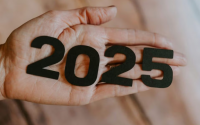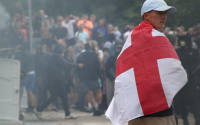24 May 2007Julian Borger
Hundreds of Indian Ocean islanders who were forcibly deported from their homeland by Britain 40 years ago won a battle yesterday which could see them set sail for an emotional return within days.
The court of appeal in London found the British government guilty of "abuse of power" for attempting to prevent the Chagos Islanders from reclaiming land leased from under their feet by Britain to the US in the 1960s.
Three judges upheld a ruling in the islanders' favour last year, ordered the government to pay their legal costs and withheld support for an appeal to the House of Lords. Giving his reason for the ruling Lord Justice Sedley wrote: "Few things are more important to a social group than its sense of belonging, not only to each other but to a place. What has sustained peoples in exile, from Babylon onwards, has been the possibility of one day returning home." The judge added: "The barring of that door, however remote or inaccessible it may be for the present, is an act requiring overwhelming justification."
An estimated 2,000 Chagossians were driven from their homes between 1967 and 1971 after Britain made a secret deal to lease the island of Diego Garcia to the US for use as an airbase. They were tricked out of their homes, encouraged to leave on temporary trips, and not allowed back.
Later, the islanders were subjected to intimidation. At one point US soldiers rounded up their dogs and gassed them. The departing Chagossians were loaded on to boats, allowed to take only one bag with them, and deposited in Mauritius, where most have lived in poverty ever since. The base has served as a refuelling stop and base for air raids in a succession of wars, most recently in Afghanistan and Iraq.
Yesterday's ruling was greeted by silence from the Chagossians in court, who have seen hopes of a return dashed several times in their four-decade exile. But Olivier Bancoult, their leader in exile who took the foreign office to court, emerged smiling holding his fingers up in a victory sign. "I'm very happy for my people," Mr Bancoult told a crowd of supporters and journalists. "We will go back and make Chagos great."
The Foreign Office said it was "disappointed" by the ruling, and said it would consider an appeal to the House of Lords. A spokeswoman said, the islanders "in theory" now had a right to go home.
Chagossians - who are descended from 18th century African and Indian labourers on French coconut plantations - are not seeking to resettle Diego Garcia itself, but other islands in the archipelago, which are from 60 to 100 miles away. US and British officials have argued that raids on the air base could be launched from those other islands, or they could be used to observe the movement of warplanes.
But yesterday's ruling meant that three British courts have decided, in effect, that security concerns cannot trump the right of the Chagos islanders to return home.
After a court declared the islanders' expulsion illegal in 2000, the government took the unusual step of blocking their return by "orders in council", a use of royal prerogative that bypassed parliament.
Last year's decision and yesterday's ruling deemed those decrees illegitimate. Lord Justice Sedley declared them to be "unlawfully made, because their content and the circumstances of their enactment constitute an abuse of power."
Richard Gifford, the Chagossians' lawyer, said his clients "now call upon the British government for a new start in this abusive relationship." He added that he expected the new Democratic majority in the US Congress to endorse the Chagossians' return, and could award them restitution for the harm they have suffered.
Fewer than half of the original 2,000 islanders deported are thought to be still alive, and most of the survivors are over 50. Many Chagossians suspect the British government of using delaying tactics designed to put off a resolution until the survivors have all died off. Two hundred have died since they won their original case in 2000 and 17 passed away in the three months it took the Court of Appeal to reach yesterday's judgment.
Roch Evenor left the island when he was four. His parents hoped to go back but both have died. Mr Evenor, now 50, said: "I'm sad it is taken so much time to settle something so straightforward, a matter of simple human rights."
Timeline
1814 Islands ceded to Britain by France
1965 Renamed the British Indian Ocean Territory
1967-71 Deportation of 2,000 islanders to make room for US base on one of the islands, Diego Garcia
November 2000 High court rules expulsion illegal. Ruling initially accepted by foreign secretary, Robin Cook, but a "feasibility study" ordered into the potential return
June 2004 UK government tries to block return of islanders through two orders in council, royal decrees which declared no one had right of abode
May 2006 The high court overruled the orders in council, describing their use to expel an entire population as repugnant
2007 Foreign office appeal rejected
http://www.guardian.co.uk/frontpage/story/0,,2086855,00.html






